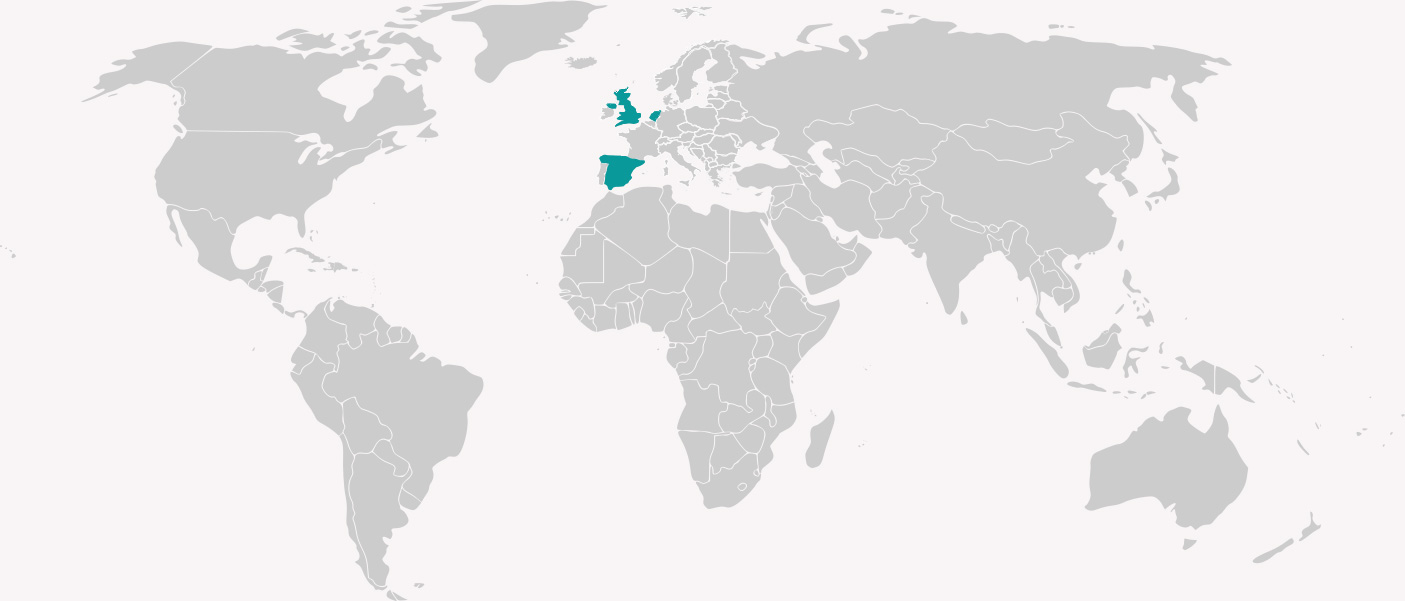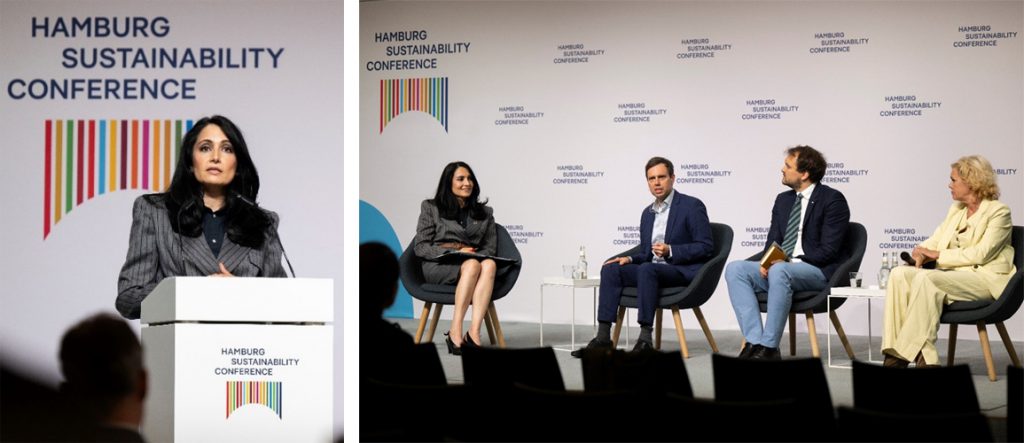This map highlights which countries the MM Model policy ideas have been implemented in. Countries highlighted in our campaign teal colour represent a country which has come on board and begun to introduce some of the key MM Model planks. The United Kingdom has led the way in introducing the MM Model’s core framework notably with the roll out of their UK Aid Match, Gavi Matching Fund and Malaria Matching Fund schemes totalling £500 million. We applaud the UK DFID for undertaking this initiative to substantially impact millions of lives around the world.
Other European countries have followed suit. The Gavi Matching Fund influenced the Netherland’s $75m commitment and Spain’s respective 4m euro commitment.
Our Real Aid mission is to scale these matching initiatives worldwide.

The Gavi Matching Fund was established in partnership with the Bill & Melinda Gates Foundation (BMGF) and the United Kingdom’s Department for International Development. Together, they pledged the equivalent of US$ 111 million1 for the 2011-2015 period (US$ 50 million and US$ 61 million, respectively). These commitments have been used to match contributions from corporations and their employees, foundations and other organisations, resulting in a total of US$ 210 million2 pledged to Gavi for the 2011-2015 period.
In 2016, the BMGF and the Government of the Netherlands committed US$ 75 million and EUR 10 million respectively to the Gavi Matching Fund. Over the 2016–2020 period, these funds will be made available to match private sector investments in Gavi- supported programmes.
1 Figure as of June 30, 2016
2 The remaining portion of the GMF has been matched against cash and in-kind contributions expected during the 2016-2020 strategic period.
https://www.gavi.org/investing-gavi/innovative-financing/gavi-matching-fund
BARCELONA, Spain — The GAVI Alliance today praised “la Caixa” Foundation’s leadership and generosity in donating € 4 million (US$ 5.7 million) to GAVI’s new Matching Fund, a public-private partnership designed to raise funds for GAVI’s immunisation programmes in poor countries. The donation – plus additional funds collected from “la Caixa” bank’s customers and employees – is particularly impactful because it will be matched by the Bill & Melinda Gates Foundation, bringing the total amount pledged to at least € 8 million (US$ 11. 4 million) over two years.
The “la Caixa” pledge – € 2 million in 2011 and € 2 million in 2012 — specifically goes toward the purchase of pneumococcal vaccine for GAVI-supported countries in Latin America. Pneumonia is the number one infectious killer of children in the developing world: roughly 1.5 million children under age five die from pneumonia each year. Funding from “la Caixa” will dramatically increase the number of children receiving pneumococcal vaccine in Latin America and raise overall immunisation coverage in recipient countries.
“Vaccines are one of the most cost-effective health interventions ever developed,” said Joe Cerrell, director of the Bill & Melinda Gates Foundation’s Europe office. “It is critical to reach every child in need of immunization, and we need the help of the private sector.”
Caucus for Country Aid Match (CCAM)
 The 2030 Agenda for Sustainable Development is a ground-breaking global commitment to end poverty and set the world on a sustainable path to inclusive development. It was endorsed by government leaders at a United Nations summit in September 2015. A set of 17 Sustainable Development Goals (SDGs) and 169 actionable targets lies at the core of this ambitious agenda. While the SDGs are not legally binding, governments have assumed a moral commitment to implement them to the best of their capacities and in accordance with national priorities.
The 2030 Agenda for Sustainable Development is a ground-breaking global commitment to end poverty and set the world on a sustainable path to inclusive development. It was endorsed by government leaders at a United Nations summit in September 2015. A set of 17 Sustainable Development Goals (SDGs) and 169 actionable targets lies at the core of this ambitious agenda. While the SDGs are not legally binding, governments have assumed a moral commitment to implement them to the best of their capacities and in accordance with national priorities.
Economic shocks have stymied progress on many of the United Nations’ SDGs. The Sustainable Development Report 2023 shows that based on the current pace of progress since 2015, none of the goals will be achieved by 2030, and on average, less than 20% of the SDG targets are on track to be achieved. In 2023, OECD DAC donors invested 0.37% of their Gross National Income (GNI) as aid. They were US$197 billion off their commitment to spend 0.7% of GNI.
Through the formation of a new interparliamentary group, the Caucus for Country Aid Match (CCAM) will use its international convening power to inform and embolden global legislators, negotiators and aid diplomats to take legislative actions for the adoption of aid matching policies across richer donor countries. Parliamentarians hold immense political influence by way of scrutinising government budgets, advocating for more effective policies, and ultimately inspiring cross-party leadership. Building on our UK parliamentary efforts, we can harness the successful outcomes of the UK APPG for Aid Match to partner with global parliamentarians in their national parliaments, acting in their individual capacity and who can unite collectively across the richer nations to power CCAM in pursuit of its goals.

Following in the tradition of the Munich Security Conference, the Hamburg Sustainability Conference (HSC) aspires to be the world’s leading forum for sustainable development. The annual conference is a joint initiative of the United Nations (UNDP), the German Federal Government (BMZ), the Michael Otto Foundation and the City of Hamburg. The inaugural HSC was officially opened by German Chancellor, Olaf Scholz. On 8th of October 2024, Renu Mehta unveiled plans for CCAM at a high-level panel discussion ‘Scaling Public Private Aid Match for SDGs’ with representatives from The Gates Foundation, GAVI and a UK Aid Match NGO recipient, Hope and Homes. This is the first of a series of international events aimed at galvanising international support to implement and scale up aid matching policies across other richer OECD and G20 donor countries. We thank Tobias Kahler, Markus Beck and Claire Wright (pictured left to right) for their insightful and stirring remarks.
Real Aid’s overarching global objective is for richer OECD DAC & G20 donor governments to a) widely become acquainted with the benefits of implementing the $100bn MM Aid Model in pursuit of attaining higher quality and quantity of aid and b) to create broad parliamentary support to influence its adoption. The MM Model is a roadmap for governments to adopt and adapt any or all of its tenets on their own accord. Our team is here to inform and assist this policy design process.
We will showcase country implementation of proven, working and scalable aid matching policies, of varying designs, and offer a menu of compatible models for respective governments to customise. Working with our international policy partners, we will build research, diplomatic and policy maker consensus calling for bigger and better-quality aid. Our global policy engagement with think tanks, luminaries and parliamentary partners would be propelled and underpinned by persistent parliamentarian outreach and dialogue. CCAM membership is open to ‘sitting’ parliamentarians of any internationally recognized State seeking to cooperate with the CCAM community to mobilise greater public private financing of the SDGs.